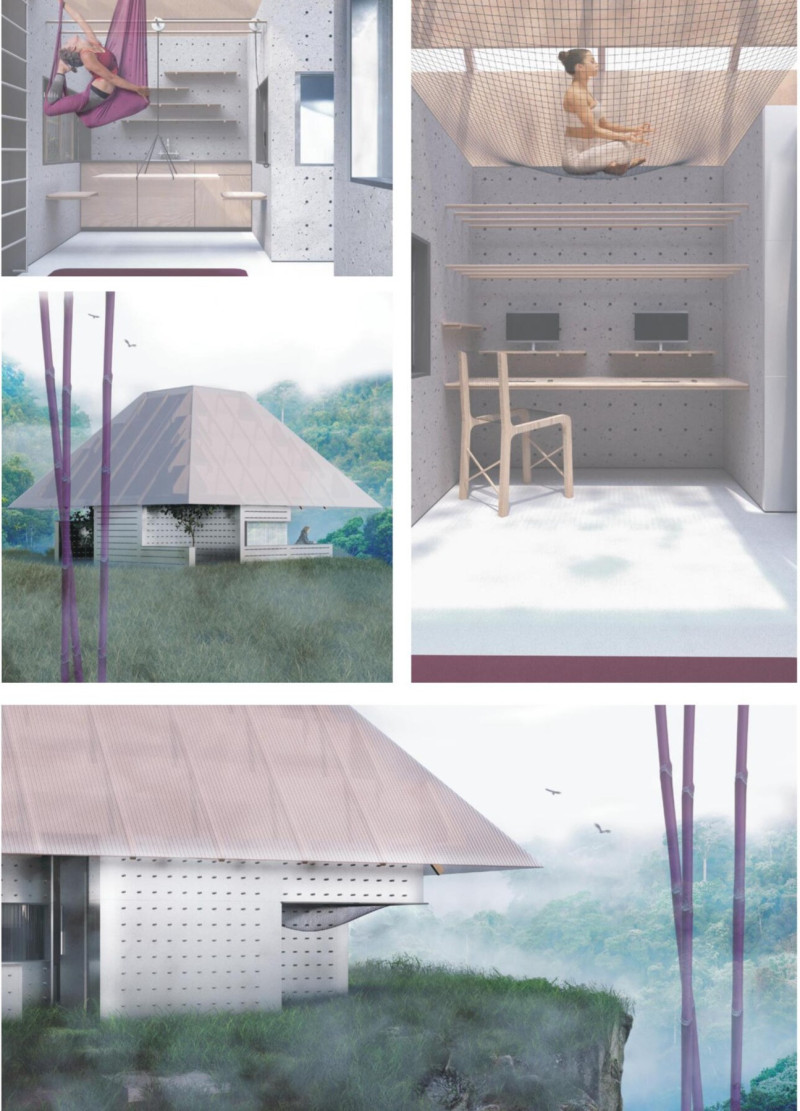5 key facts about this project
This residential design is characterized by its modular construction, which allows for a flexible and adaptable living space. The layout is methodically organized to define distinct zones for various activities, including areas for relaxation, work, and social interaction. This thoughtful spatial division enhances usability, catering to the evolving needs of its inhabitants. Outdoor spaces are strategically incorporated, encouraging a harmonious relationship between the interior and the surrounding nature. Gardens, terraces, and hammocks are designed to blend seamlessly with the architectural structure, inviting occupants to engage with the landscape.
In terms of materiality, the Stack House stands out through its innovative use of recycled plastic waste, which is repurposed into wall panels. This choice reflects a commitment to sustainability while showcasing a contemporary understanding of materials that challenges traditional building practices. Complementary materials such as concrete and wood further enrich the design, providing durability and warmth. Concrete serves as a robust foundation and flooring material, while plywood and timber accents contribute to an inviting atmosphere. The judicious use of aluminum for roofing adds a modern touch and is aligned with energy-efficient building practices.
The design incorporates a pyramidal roof structure that facilitates effective drainage and optimizes natural light throughout the living spaces. This geometry not only enhances the aesthetic appeal but also demonstrates an understanding of environmental factors that influence energy consumption and comfort within the home. Each element of the Stack House is intentionally designed, showcasing an attention to detail that prioritizes both form and function.
Unique design approaches are evident in the project’s adaptability and connection to the environment. By employing modular units, the architectural design allows for various configurations, catering to different family sizes and lifestyles. This versatility positions the Stack House as a potential solution for diverse housing needs within sustainable urban development. Furthermore, the integration of outdoor living areas emphasizes the importance of nature in daily life, promoting a sense of well-being and community engagement.
In exploring the Stack House, viewers are invited to consider how this project reflects contemporary architectural ideas focused on sustainability and adaptability. The design promotes a lifestyle that respects environmental boundaries while providing a nurturing atmosphere for its occupants. The work exemplifies the potential of architecture to inspire change by illustrating how thoughtful design can enhance everyday living.
For those interested in delving deeper into the project, exploring the architectural plans, sections, and designs will provide further insight into the innovative approaches employed throughout the Stack House. Engaging with these elements can foster a greater appreciation for how architectural ideas can contribute to sustainable living and modern community dynamics.























